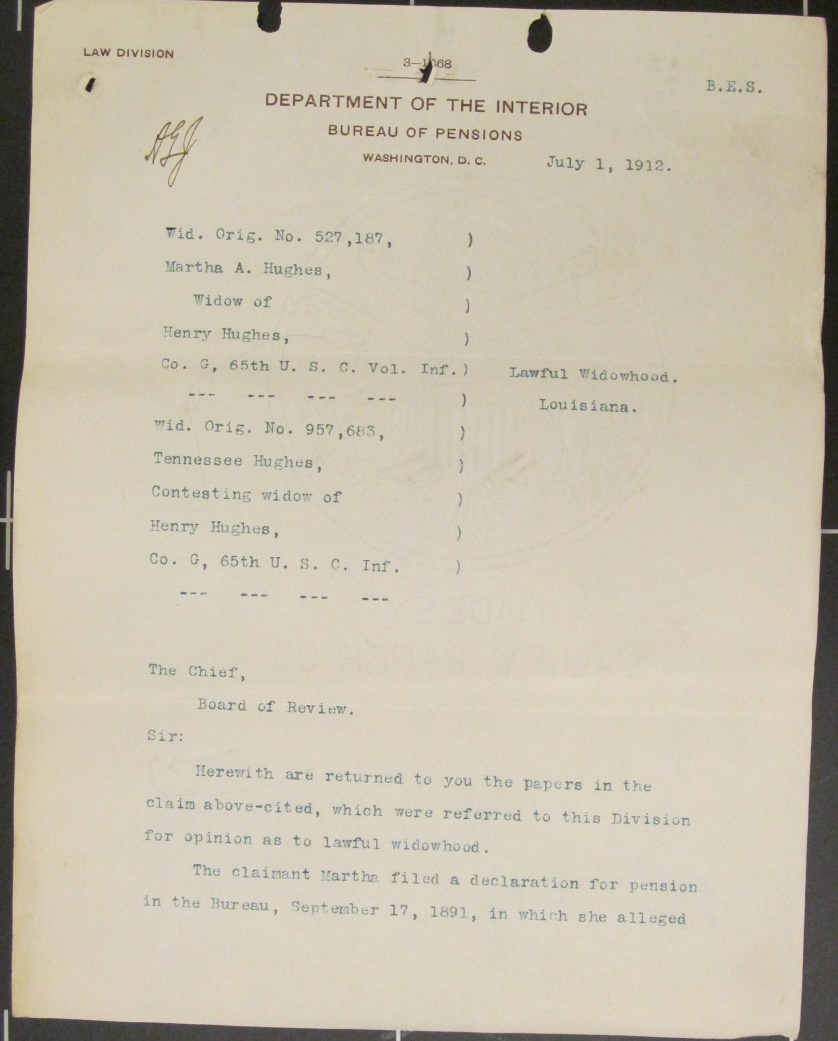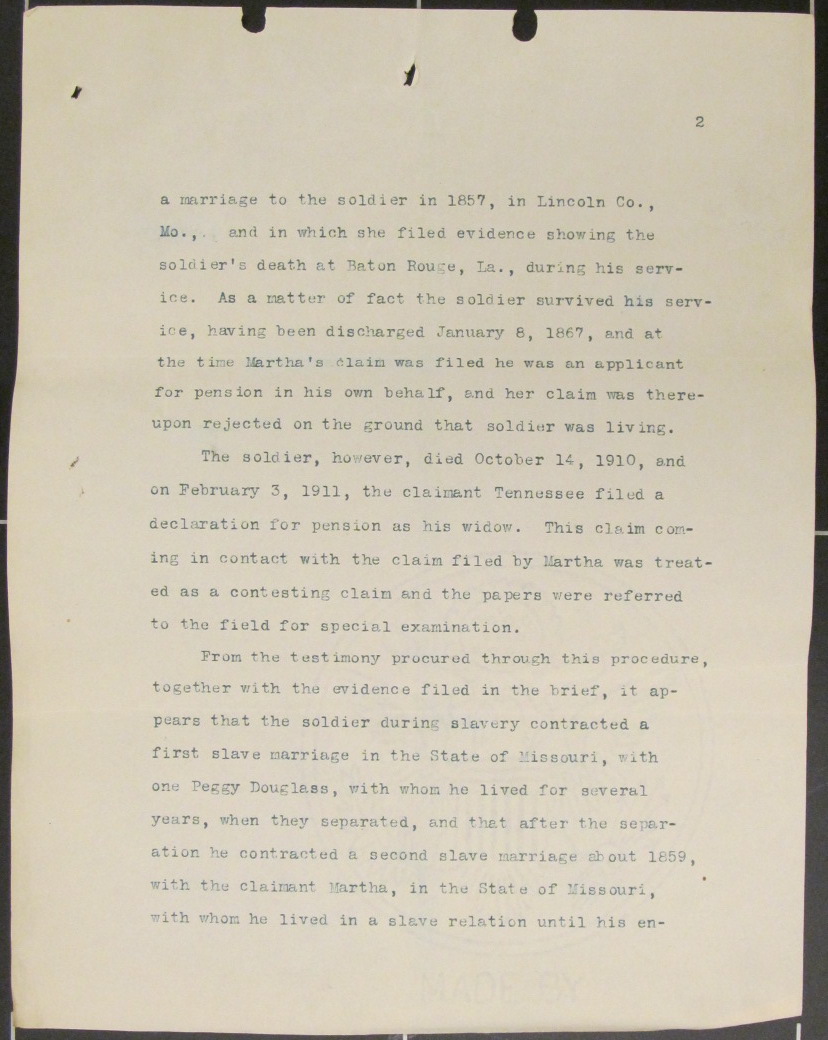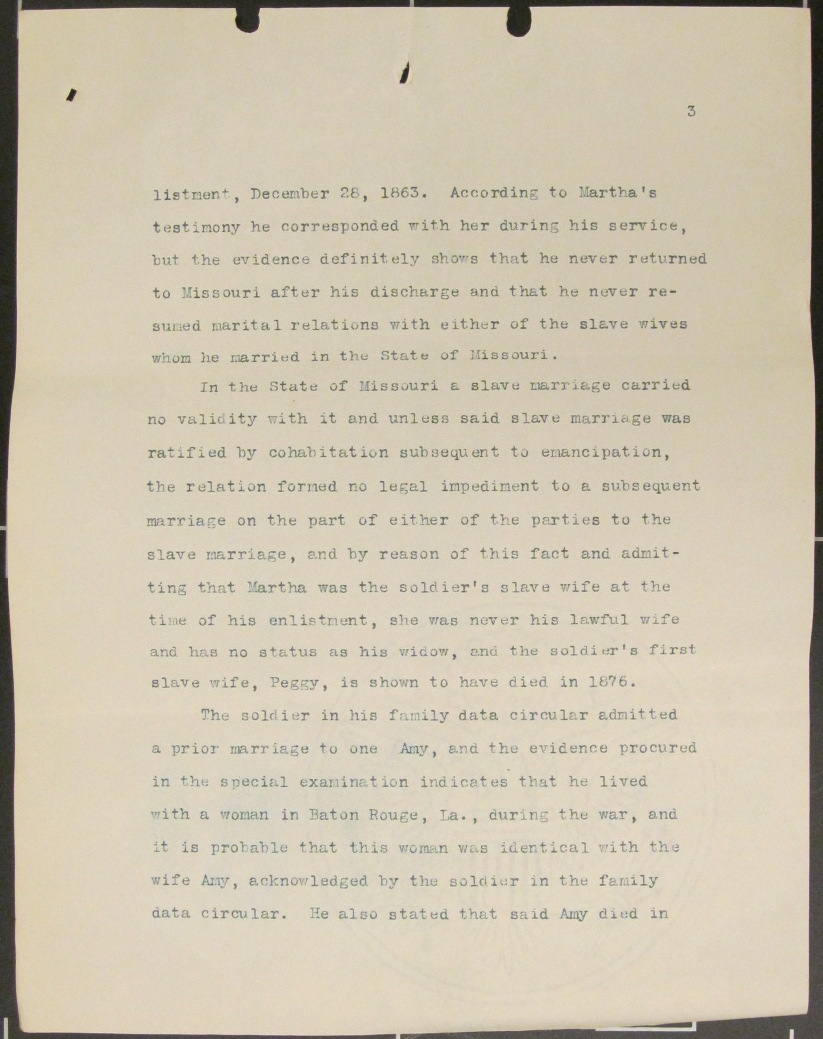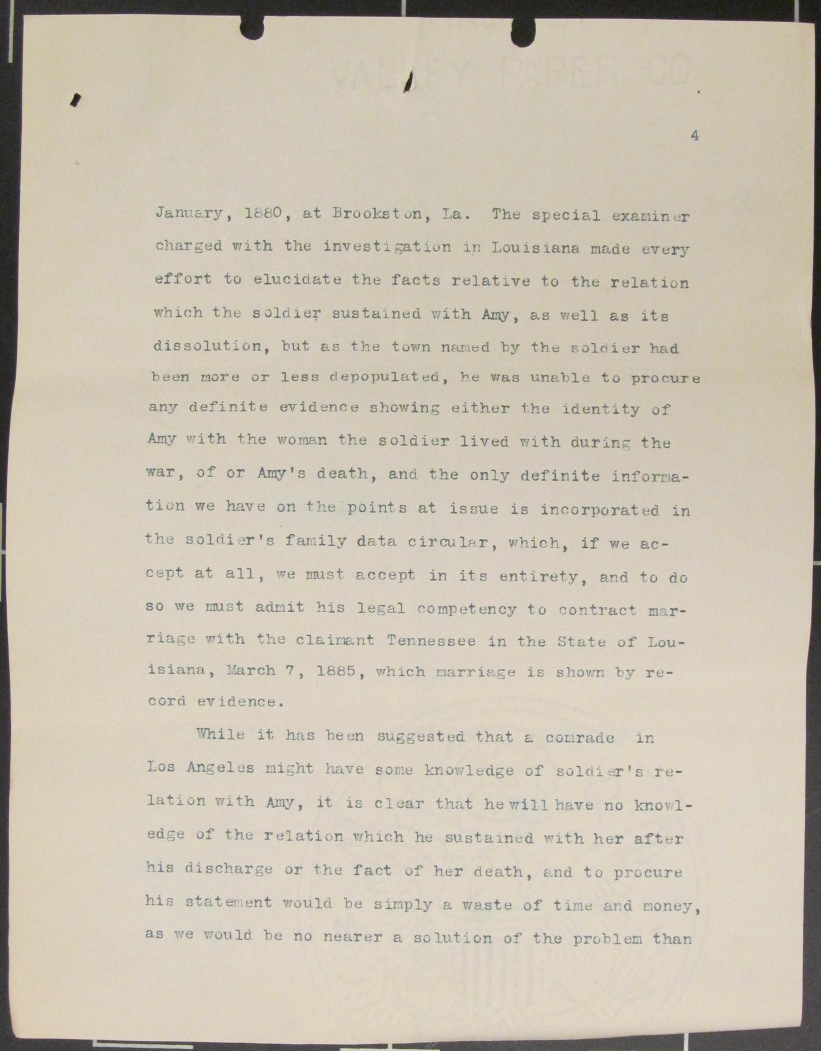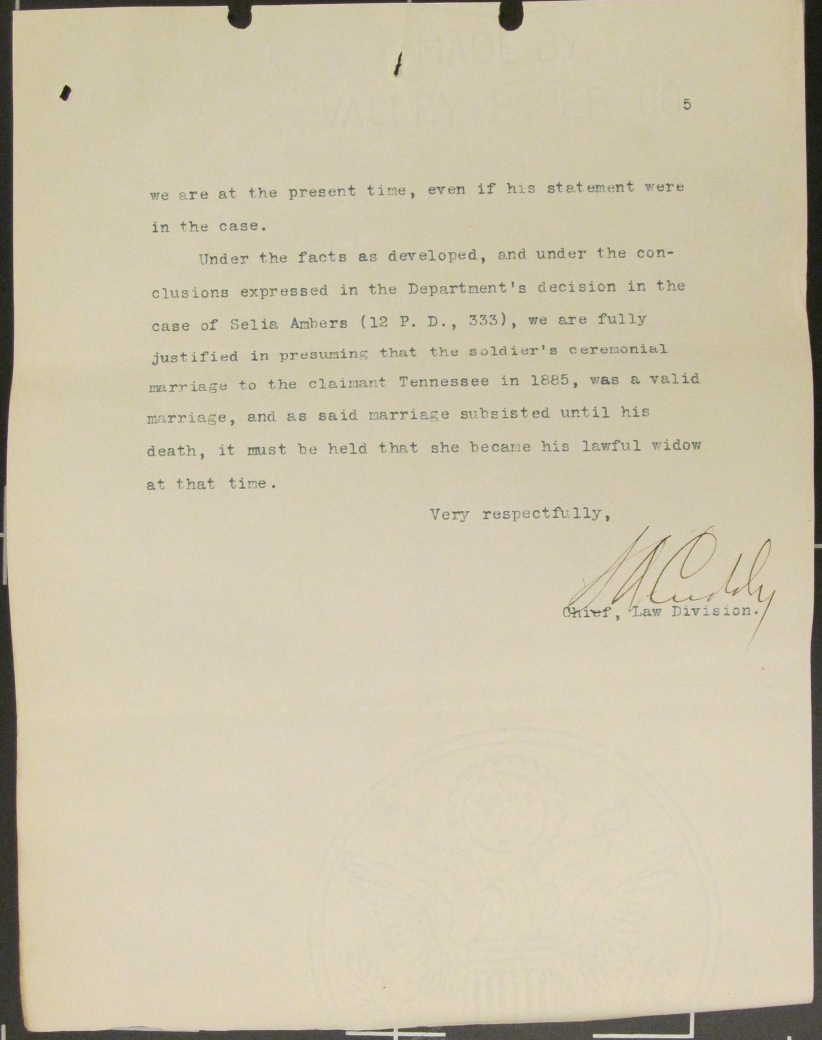The Pension Bureau investigated conflicting claims of two women who both stated they were the lawful widow of Henry Hughes.
LAW DIVISION 3—1068 B.E.S.
DEPARTMENT OF THE INTERIOR
BUREAU OF PENSIONS
WASHINGTON, D.C. July 1, 1912.
Wid. Orig. No. 527, 187,)
Martha A. Hughes,)
Widow of )
Henry Hughes,)
Co. G, 65th U. S. C. Vol. Inf.) Lawful Widowhood.
--- --- --- --- ) Louisiana.
Wid. Orig. No. 957,683,)
Tennessee Hughes,)
Contesting widow of)
Henry Hughes,)
Co. G, 65th U. S. C. Vol. Inf.)
--- --- --- ---
The Chief,
Board of Review.
Sir:
Herewith are returned to you the papers in the claim above-cited, which were referred to this Division for opinion as to lawful widowhood.
The claimant Martha filed a declaration for pension in the Bureau, September 17, 1891, in which she alleged a marriage to the soldier in 1857, in Lincoln Co., Mo., and in which she filed evidence showing the soldier’s death at Baton Rouge, La., during his service. As a matter of fact the soldier survived his service, having been discharged January 8, 1867, and at the time Martha’s claim was filed he was an applicant for pension in his own behalf, and her claim was thereupon rejected on the ground that the soldier was living.
The soldier, however, died October 14, 1910, and on February 3, 1911, the claimant Tennessee filed a declaration for pension as his widow. This claim coming in contact with the claim filed by Martha was treated as a contesting claim and thus the papers were referred to the field for special examination.
From the testimony procured through this procedure, together with the evidence filed in the brief, it appears that the soldier during slavery contracted a first slave marriage in the State of Missouri, with one Peggy Douglass, with whom he lived for several years, when they separated, and that after the separation he contracted a second slave marriage about 1859, with the claimant Martha, in the State of Missouri, with whom he lived in a slave relation until his enlistment, December 28, 1863. According to Martha’s testimony he corresponded with her during his service, but the evidence definitely shows that he never returned to Missouri after his discharge and that he never resumed marital relations with either of the slave wives whom he married in the State of Missouri.
In the State of Missouri a slave marriage carried no validity with it and unless said slave marriage was ratified by cohabitation subsequent to emancipation, the relation formed no legal impediment to a subsequent marriage on the part of either of the parties to the slave marriage, and by reason of this fact and admitting that Martha was the soldier’s slave wife at the time of his enlistment, she was never his lawful wife and has no status as his widow, and the soldier’s first slave wife, Peggy, is shown to have died in 1876.
The soldier in his family data circular admitted a prior marriage to one Amy, and the evidence procured in the special examination indicates that he lived with a woman in Baton Rouge, La., during the war, and it is probable that this woman was identical with the wife Amy, acknowledged by the soldier in the family data circular. He also stated that said Amy died in January, 1880, at Brookston, La. The special examiner charged with the investigation in Louisiana made every effort to elucidate the facts relative to the relation which the soldier sustained with Amy, as well as its dissolution, but as the town named by the soldier had been more or less depopulated, he was unable to procure any definite evidence showing either the identity of Amy with the woman the soldier lived with during the war, of or Amy’s death, and the only definite information we have on the points at issue is incorporated in the soldier’s family data circular, which, if we accept at all, we must accept in its entirety, and to do so we must admit his legal competency to contract marriage with the claimant Tennessee in the State of Louisiana, March 7, 1885, which marriage is shown by record evidence.
While it has been suggested that a comrade in Los Angeles might have some knowledge of soldier’s relation with Amy, it is clear that he will have no knowledge of the relation which he sustained with her after his discharge or the fact of her death, and to procure his statement would be simply a waste of time and money, as we would be no nearer a solution of the problem than we are at the present time, even if his statement were in the case.
Under the facts as developed, and under the conclusions expressed in the Department’s decision in the case of Selia Ambers (12 P. D., 333), we are fully justified in presuming that the soldier’s ceremonial marriage to the claimant Tennessee in 1885, was a valid marriage, and as said marriage subsisted until his death, it must be held that she became his lawful widow at that time.
Very respectfully,
J A Cuddy
Chief, Law Division.
Pension Records for Henry Hughes, RG15, National Archives and Records Administration, Washington, D.C.

